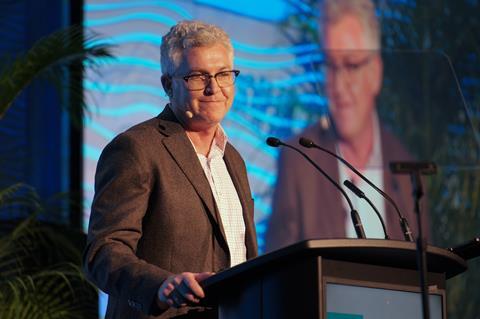Former ITV Studios exec’s comments come as producers exit Hollywood for lower cost territories

Roku’s head of content, David Eilenberg, has called on Californian officials to expand its tax incentive scheme to support embattled unscripted producers in the Hollywood state.
California has seen productions decline rapidly over recent years, with the total number of shooting days in 2024 hitting just 23,480, a 5.6% fall on the previous year, according to FilmLA.
The figures meant 2024 was the second least productive year on record for California, only behind pandemic-hit 2020, while reality TV recorded its ninth quarter of year-over-year decline.
Governor Gavin Newsom has already unveiled plans to more than double the state’s Film & Television Tax Credit Program to $750m annually, but execs have urged more is needed particularly for those working in unscripted TV.
Banijay Americas CEO Ben Samek wrote late last year in The Hollywood Reporter that ignoring unscripted was a “clear miss” and Eilenberg told NATPE Global that support for the genre was much-needed.
“To be clear, there is much to be gained from fostering and nurturing creators worldwide and I am a huge believer in the global democratisation of storytelling,” he said.
“However, I must confess it would sadden me immensely to see California’s historical standing as a central hub of film and TV production continue to shrink, especially in a region where the benefits of the economic activity that comes from consistent production is needed more than perhaps it ever has.
“I hope to see the state continue to take production back to California including critically offering a widening of the tax and incentive program to include unscripted TV as a qualifying genre,” he said.
The Roku content chief, and former chief creative officer at ITV America, added that he expected to see an increase in US commissioning following a torrid 2024 for unscripted producers.
“Some entertainment buyers, especially those priced out of the bull rush for sports, are poised to initiate an uptick in spend in 2025 after a couple of very lean years for original commissioning.
“But I equally expect much of that spend will be concentrated on fewer bigger broadcast style shows,” he continued, with a “desire to create mass reach and brand friendliness that advertisers and agencies crave.”







No comments yet